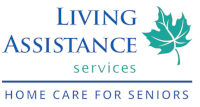If you ask a retired person what surprised them most about retirement, most will tell you it was the unexpected costs. Contrary to popular belief, OHIP is not universal health care by any stretch; there’s no such thing as universal health care.
It’s easy to see how one can be misled with doctor visits and hospital stays being covered throughout the first part of our lives, but as the years move on our health care requirements change. The risk of chronic illness increases significantly after 50, leading to a need for more prescriptions, assisted living devices like canes and walkers, and other expenses that are not entirely covered by OHIP, if at all.
What Does OHIP Cover for Seniors?
What OHIP covers for seniors depends on several factors, such as your income and whether or not you have private insurance. These things determine what will be covered and whether fully or partially.
The Ontario Drug Benefit program covers the cost of most of the drugs listed on the Ontario Drug Benefit formulary. In 2014, the average senior household was paying $500 out-of-pocket for prescription drugs each year.
Other expenses that are not fully covered, if at all, by OHIP include:
- Transportation
- Assistive devices
- Medical supplies
- Accessibility modifications
- Physiotherapy
With costs increasing and private and public resources being steadily reduced, planning for your senior care has never been more crucial.
A Home Care Agency vs. LHIN Home Care
A common misconception is that home health care services are covered by our government. The reality is that only very basic home care services are covered and may only be partially covered, if at all, depending on your circumstances.
Home care services are a necessity, not a luxury, and worth planning for.
Professional home care services offer more flexibility than the home care provided by LHIN (Local Health Integration Network). You and your family can chose as much or as little help as you need and make changes as needed along the way when you enlist the services of a home care agency. We also encourage you to choose your caregiver. Having the same caregiver allows you to build trust and develop a genuine friendship with your caregiver, making for a more pleasant experience all around. Also, the consistency makes it easier for your caregiver to provide you with exactly the care you need. There is no guarantee that you will get the same PSW every visit when LHIN is coordinating your care and the services covered are minimal and often limited to very basic home health care even if you require more. For many, getting the absolute minimum elderly care needed requires dealing not only with LHIN, but other community services and organizations.
The home care services we offer include many of the tasks that are not offered by LHIN, including:
- Transportation
- Escorting to appointments
- Shopping and other errands
- Light housekeeping
- Meal planning and preparation
- RN supervised care
- Joyful companionship
It’s important to plan ahead and do your homework about the many unexpected costs that many seniors face.
We’re here to help.
David Porter, CPCA
Director

